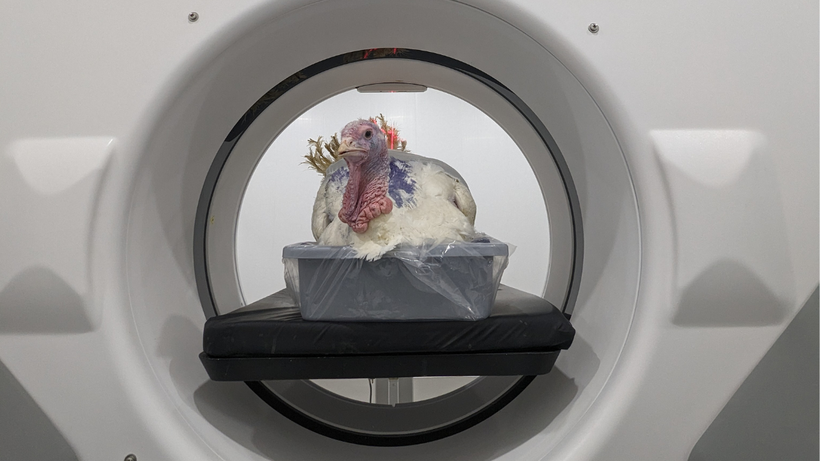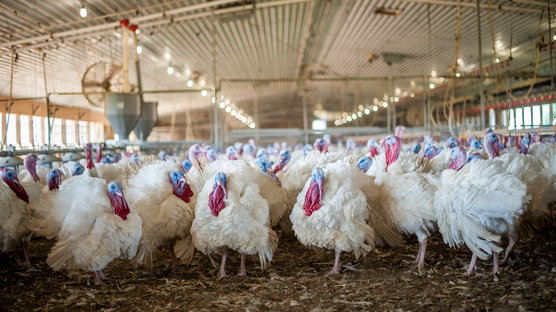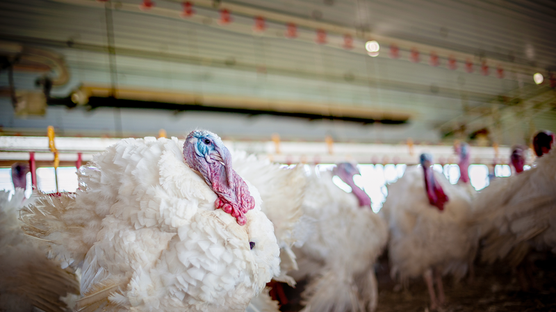
Published on June 17, 2024
Laying the foundation for turkey success
An innovative genomic selection project, a collaboration between University of Guelph researchers and Hybrid Turkeys, utilized RFID tags and CT scans to improve turkey production. The project resulted in one of the largest datasets available worldwide for investigating the relationship between genomic variation, meat quantity, meat quality, and novel health and welfare-related traits in turkeys.
NOTE: This article was originally published in Canadian Poultry Magazine.
By: Emily Leishman, Nienke van Staaveren, Ryley Vanderhout, Xuechun Bai, Owen Willems, and Christine Baes.
In 2017, a team led by Dr. Christine Baes at the University of Guelph joined forces with Hybrid Turkeys to apply genomic selection for improved health, welfare, efficiency, and production in Canadian turkeys. This five-year project finished in 2021 and made significant contributions to advancing turkey research.
In particular, a large proportion of research focused on the development of novel phenotypes related to health, welfare, carcass, and meat quality traits. In collaboration with Hybrid Turkeys, a commercial abattoir, and the U of G research team, over 44 weeks of data collection were performed by the team on >12,000 birds. This resulted in one of the largest datasets available worldwide for investigating the relationship between genomic variation, meat quantity, meat quality, and novel health/welfare-related traits in turkeys.
The novel phenotyping pipeline in abattoir conditions was retained by Hybrid Turkeys to continue data collection to measure selected carcass and meat quality traits for future breeding program (i.e., colour, image analysis to estimate carcass components).
Key traits
Traits considered throughout this project included:
- Health and welfare traits: Walking ability, feather corticosterone, fault bar traits, pendulous crop.
- Meat quantity: Carcass portion weights and yield.
- Meat quality: Colour measurements, pH measurement, drip loss, cooking loss, shear force, white striping.
- Production and fertility: Body weight, feed conversion ratio, broodiness traits, egg numbers, fertile eggs, hatch of set eggs, hatch of fertile eggs.
Click here for further insights on industry impact and details on future direction of the project.



